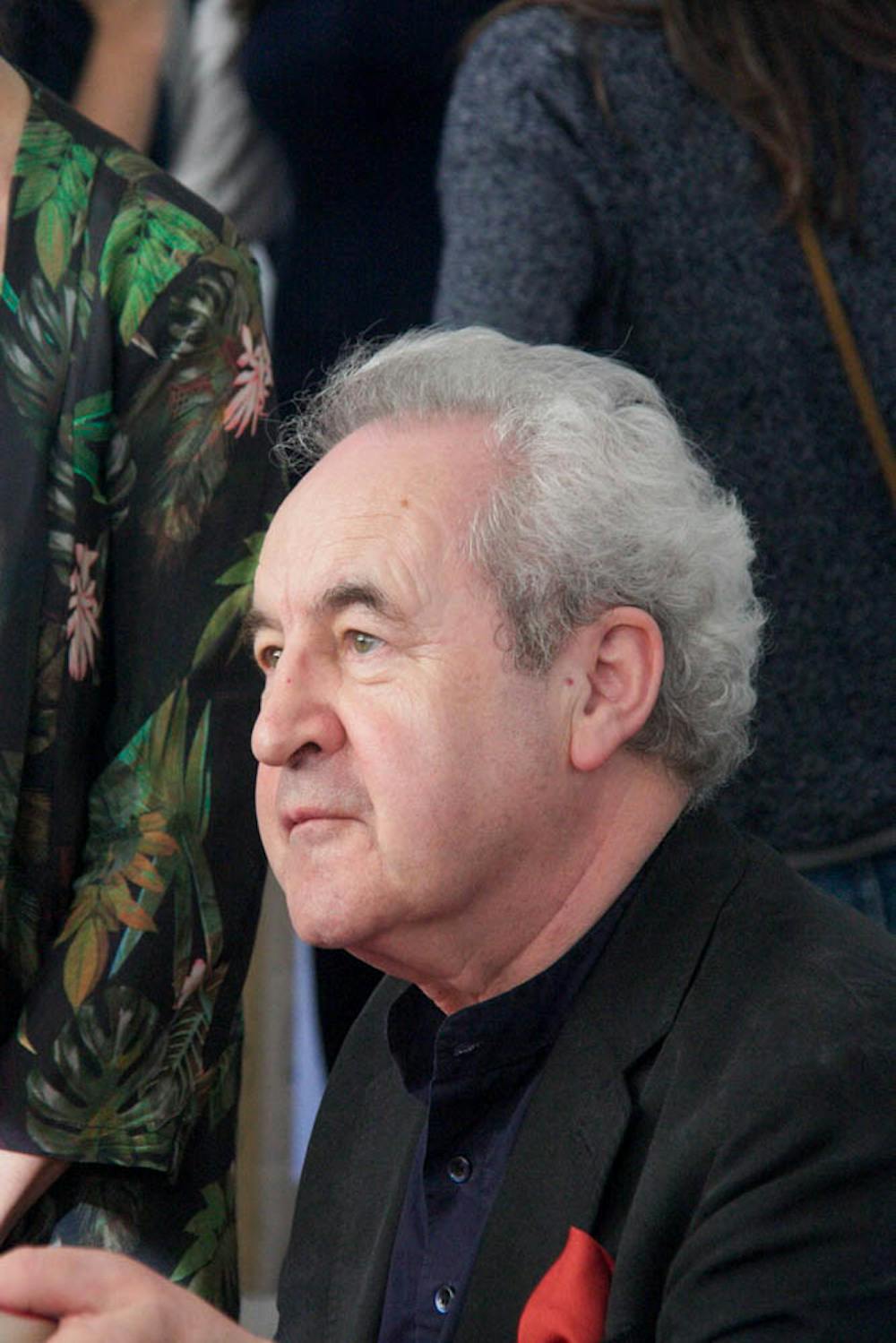Monday night, the Department of Literary Arts hosted Irish novelist John Banville, author of Booker Prize-winning novel “The Sea.” Though small in size, the audience present in Salomon Center 001 listened with rapt attention as Professor of English Paul Armstrong opened a conversation with Banville on various literary subjects.
Academic Program Director and Senior Lecturer Gale Nelson introduced Banville as “a writer of incomparable gifts.” For readers interested in adding Banville’s works to their repertoire, “a logical place to start with would be ‘The Sea’,” Nelson said, proceeding to also recommend “The Book of Evidence,” “Ghosts” and “Athena.”
From the very start, Banville’s interactions with the audience were characterized by his dry sense of humor. He first addressed audience members by jokingly thanking them for “finding (their) way into this crowded auditorium” and added that he “hardly recognized” the praise Nelson had flattered him with.
Banville began by reading two passages from his novel, “The Infinities.” One might compare “The Infinities” to “a composition by Bach or Mozart,” Nelson said, adding that the work is not only “structurally sure, (but) is also exquisite in terms of pace, language and point of view.” Following the reading, Banville was joined by Armstrong, who discussed the process of writing and delved deeper into some Banville’s works.
“You said I should read ‘The Infinities’ because it is the work of yours that disgusts you the least,” began Armstrong, asking Banville what he meant by this statement. “‘The Infinites’ is the book that came nearest to what I set out to do,” Banville responded, adding that writers often start out with wonderful optimism and then halfway through the process of writing the novel, “we’re wading through muck. … That’s what novels do.” But with “The Infinites”, he believes he got “somewhere close to what he (planned to do).”
Armstrong proceeded to discuss various aspects of the process of writing and the idea of whether authors produce art consciously or subconsciously. “When I started writing I felt very much in control,” Banville said. “When we’re young, we think old age brings wisdom, but of course, old age just brings confusion,” he said sarcastically, adding, however, that confusion is a good state for novelists. “You realize that art is made in darkness,” he said. “We think we’re reasoning, but in fact we’re drifting. … All knowledge is in retrospect.”
The conversation soon steered toward Banville’s sources of inspiration. “My biggest influences would be Henry James and (William Butler) Yeats,” Banville said, describing how James “captures the sense of what is it to be alive,” while Yeats taught him “not to be afraid of grandeur and stately language and not to write down.”
Armstrong concluded the discussion by asking what advice Banville would give to aspiring writers. “The only advice I could give to a young writer is to look into the world and not into your own soul,” Banville said. “First of all, you haven’t got a soul — it’s a myth,” he joked, ending on a more serious note by saying,“it’s the world that counts.”
A previous version of this article mistakenly referred to The Infinities as The Infinites. The article also misquoted Professor of English Paul Armstrong’s opening remarks to John Banville. The Herald regrets the error.





